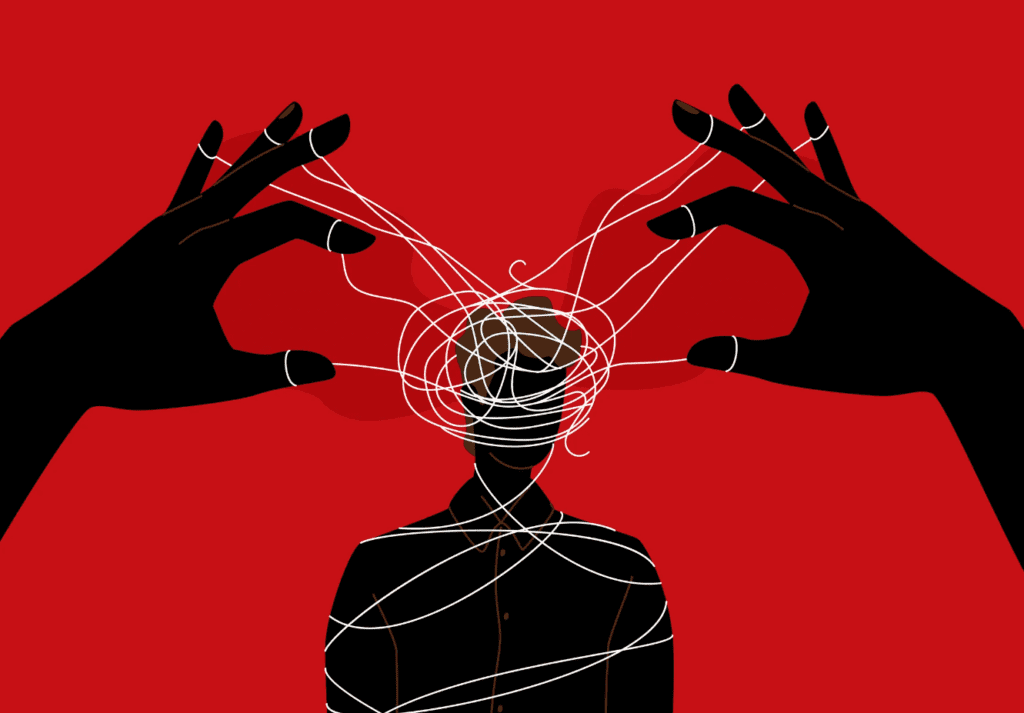
Being in a relationship with emotionally immature people can be draining and frustrating. Their inability to regulate their own feelings and understand the emotions of those around them can break down communication and harmony in the connection. Recognizing the signs of emotional immaturity is essential for understanding and managing relationships with such individuals and protecting ourselves from pain and heartbreak. Learn what to look out for and how to deal with people who exhibit those qualities. (Estimated reading time: 10 minutes)
“Emotional maturity doesn’t come with age, it comes from self-awareness.”
– Tory Eletto
Navigating relationships can be tricky, especially when dealing with emotionally immature people. Their behavior can present itself in various forms, extending beyond mere childishness or outbursts. It is a complex issue that requires careful handling.
As social beings who like to give others the benefit of the doubt, it’s easy to gloss over an emotionally immature transgression. After all, don’t we all sometimes behave in childish ways that are not the most effective in dealing with a problem?
What sets an emotionally immature person apart is that they consistently show up in detrimental ways to those around them. You’ll see an unmistakable pattern of behavior matching the archetype of an emotionally immature person.
You’ll see it in the colleague who always expresses resentment and does not cooperate in meetings. The romantic partner who gaslights you and doesn’t take responsibility for hurting you. Or the friend who keeps ghosting you when you make plans with them.
Over time, the negative effect of their recklessness on us builds up and gradually chips away at our sense of self-worth. It robs us of our inner peace as we live on the edge, anticipating the worst from their unpredictable state.
Some cases of emotional immaturity may even lead to physical harm. Most victims of domestic abuse will tell you they saw red flags about their partner’s emotional instability and the unhealthy ways they expressed themselves. I picked up on the warning signs in my friend’s (whom I’ll refer to as Mona) boyfriend.
On paper, Mona’s boyfriend was perfect. He was 6 feet tall, had impeccable dress sense, and an unmistakable charm that made him popular in his social and professional circles. Yet, I couldn’t overlook his moodiness and the derogatory statements he directed at Mona, who was nothing but nice to him. A couple of years after they were married, Mona divorced him because of domestic violence.
It took Mona a couple of years to get over the trauma caused by the relationship. Like many survivors of abuse, she realized she was drawn to toxic relationships and had to work on the childhood wounds that informed her romantic choices. It was also crucial for her to recognize the signs of an emotionally healthy partner based on how they speak and behave.
While not all of us will share the same fate as Mona (not all emotional immaturity is toxic or abusive), it’s essential to gain the same level of awareness so that we can avoid these situations. This is especially important if we were exposed to early relationships filled with emotional immaturity and learned that these ways of interacting were normal.
From inconsistent moods and a constant need for validation to difficulty taking responsibility for their actions, emotionally immature people are often incapable of handling conflicts or communicating effectively. They can create a toxic environment that leaves you feeling drained and frustrated.
Whether in romantic relationships, friendships, or professional settings, recognizing emotionally immature people allows you to make informed decisions and take appropriate actions to protect your well-being. Remember, emotional maturity is a lifelong journey, and by fostering self-awareness, empathy and personal growth, you can cultivate healthier and more fulfilling bonds with others.
What is emotional immaturity?

Emotionally immature people struggle with effectively managing and expressing their emotions in a constructive and healthy way. This can result from underdeveloped emotional intelligence, creating challenges in regulating their own feelings and understanding the emotions of those around them.
Emotional immaturity is often characterized by a lack of self-awareness, issues with impulse control, and a reluctance to take accountability for their behavior. Additionally, emotionally immature people may demonstrate erratic mood changes, impulsive behaviors, and a limited capacity for empathy. These traits can greatly influence the quality of their relationships, both personally and in the workplace.
6 general signs of emotional immaturity
Recognizing the signs of emotional immaturity is essential for understanding and managing relationships with such individuals. While occasional immature behaviors are expected, consistently exhibiting several of the following traits may indicate emotional immaturity:
1. Impulsive reactions: Emotionally immature people often react impulsively without considering the consequences. They act without thinking, leading to impulsive decisions that negatively affect their relationships and personal well-being.
2. Difficulty in emotional management: They struggle to regulate their emotions and may have extreme reactions to even minor triggers. Frequent mood swings and rapidly shifting from extreme happiness to anger or sadness are common.
3. Lack of self-awareness: Emotional immaturity often coincides with a limited understanding of one’s own emotions, needs, and desires. This makes it challenging for them to communicate and connect with others effectively.
4. Avoiding responsibility: Emotionally immature people often struggle to take responsibility for their actions. They may shift blame onto others or make excuses, avoiding accountability and hindering personal growth.
5. Lack of empathy: Understanding and empathizing with others’ emotions can be challenging for emotionally immature people. They struggle to see things from another person’s perspective, resulting in a lack of empathy and understanding in their relationships.
6. Low emotional resilience: Emotionally immature people may find it hard to bounce back from setbacks or cope with adversity. They quickly become overwhelmed by stress and struggle to adapt to change.
Emotional immaturity in romantic relationships
Knowing the signs of emotional maturity in a romantic connection is crucial. It can save us from the pain and heartbreak of being with a partner who could take us on an emotional rollercoaster. And if we’re the emotionally immature ones, we can improve and have healthier and more fulfilling relationships by changing our behaviors.
Certain telltale behaviors demonstrate an inability to manage emotions. If you’re with someone who constantly creates unnecessary drama, leading to misunderstanding, conflict, and emotional turbulence, you’re most likely with an emotionally immature person. The struggle to communicate effectively greatly impedes your chances of finding consensus when you disagree.
An emotionally immature partner could also fall into one of two extremes: they constantly need your attention and validation, or they fear commitment and refuse to make the emotional investment and be vulnerable with you. Whether a person leaves you feeling smothered or out in the cold, you should pay attention because both leave you feeling unloved.
Spotting these signs can help you evaluate the emotional maturity of your partner and make informed decisions about the future of your relationship.
Emotional immaturity in friendships

Emotional immaturity can also affect your friendships. We’ve all had that friend who makes things difficult because of their irrational acts, leaving us second-guessing ourselves. If we see them for who they are, at what point do we draw the line? A good way to make this assessment is to look at how many indicators you see in your friendship.
A common sign of an emotionally immature friend engaging in frequent gossip or negative talk about others. They may feel envious or resentful, making it hard to feel genuinely happy and supportive of their friends’ success.
Toxic friendships can often feel one-sided, with one friend doing all the heavy lifting while the other cares only about their own needs. They may consistently expect support and validation while offering little in return.
Conflict resolution with emotionally immature friends is an uphill battle. They may struggle to take responsibility for their actions, deflect blame onto others, or make excuses. This can also manifest as passive-aggressive behavior, blame-shifting, or avoiding confrontation altogether.
If you see any of these behaviors in a friend, it might be worth evaluating your friendship and deciding whether you would like it to continue. We all deserve to have friends who treat us with dignity and reciprocate the goodwill and kindness we are willing to show them.
Effects of emotional immaturity in relationships
Emotional immaturity can significantly impact personal and professional relationships. When interacting with emotionally immature people, it’s common to experience frustration, confusion, and even emotional exhaustion. Understanding the effects of emotional immaturity can help establish boundaries and effectively manage these relationships.
- Challenges in communication: Emotionally immature people often struggle with effective communication, making it challenging for them to express their needs and emotions clearly. This can result in misunderstanding and conflict within relationships.
- Lack of emotional support: Because of their limited emotional awareness, emotionally immature people may find it challenging to provide emotional support to their partners, friends, or colleagues. This can leave others feeling unheard, unsupported, and emotionally neglected.
- Unresolved conflicts: Emotional immaturity often leads to difficulties in resolving disputes in a healthy and constructive manner. These individuals may resort to passive-aggressive behavior, blame-shifting, or avoiding confrontation altogether, hindering conflict growth and resolution.
- Trust issues: The lack of emotional maturity can contribute to relationship trust issues. Emotionally immature people may struggle to establish and maintain trust because of their impulsive behavior, lack of accountability, and inability to empathize with others.
- Emotional drain: Dealing with emotionally immature people can be emotionally draining. Their constant need for validation, inability to manage their emotions, and tendency to create unnecessary drama can take a toll on their mental and emotional well-being.
What causes emotional immaturity?
Emotional immaturity can arise from various factors, like childhood experiences, upbringing, and personal growth. It is crucial to understand the underlying causes to approach these individuals with empathy and compassion.
1. Childhood trauma or neglect: Those who have undergone childhood trauma or neglect may encounter difficulties in achieving emotional maturity. Traumatic experiences can impede emotional development, making it difficult to regulate emotions and establish healthy relationships.
2. Absence of positive role models: Growing up without positive role models who demonstrate emotional maturity can contribute to the development of emotional immaturity. Without guidance and examples of healthy emotional expression, individuals may struggle to cultivate these skills on their own.
3. Overprotective or permissive parenting: Overprotective or permissive parenting styles can hinder emotional growth and independence. When individuals aren’t given the opportunity to confront challenges and learn from their mistakes, they may find it difficult to develop emotional resilience and maturity.
4. Emotional invalidation: Consistent emotional invalidation during childhood can impact emotional development. When individuals’ emotions are consistently disregarded or diminished, they may learn to suppress or ignore their feelings, resulting in emotional immaturity.
How to deal with emotionally immature people
Dealing with people who lack emotional maturity can be pretty challenging, but there are effective strategies that can be utilized to handle these relationships:
1. Establish clear boundaries
Setting and enforcing clear boundaries is crucial when dealing with emotionally immature people. Clearly communicate your expectations and limits, and consistently uphold them.
2. Focus on self-care
Prioritizing self-care is essential to safeguarding your well-being. Dedicate time for yourself, engage in activities that bring you happiness, and seek support from trusted friends or professionals.
3. Cultivate empathy and understanding
Although it may be difficult, developing empathy and understanding for emotionally immature people can enable you to approach these relationships with patience and compassion.
4. Foster open communication
Engage in open and honest communication, assertively expressing your needs and concerns. Use “I” statements to avoid assigning blame and create a safe environment for dialogue.
5. Encourage personal growth
Support their personal growth and emotional development by offering resources and assistance. However, it is important to remember that change ultimately lies within the individual, and they must be willing to take steps toward growth.
By implementing these strategies, you can effectively navigate relationships with emotionally immature people while prioritizing your own well-being and growth.
Developing emotional maturity within ourselves

Developing emotional maturity is an ongoing journey that necessitates introspection, self-awareness, and a desire to evolve. Here are several measures you can adopt to augment your emotional maturity:
1. Develop self-awareness: Dedicate time to ponder your emotions, thoughts, and behaviors. Foster an understanding of how your emotions influence your actions and their impact they have on those around you.
2. Practice emotional regulation: Acquire techniques to manage and regulate your emotions effectively. This may involve engaging in deep breathing exercises, mindfulness practices, or seeking guidance from professionals.
3. Solicit feedback: Request feedback from trusted friends, family, or mentors. Seek constructive criticism and remain open to receiving and learning from it.
4. Cultivate empathy: Try to imagine yourself in others’ shoes and genuinely strive to comprehend their perspectives and emotions. This can foster empathy and fortify your relationships.
5. Assume responsibility: Embrace accountability for your actions and choices. Acknowledge and learn from your mistakes instead of shifting blame onto others.
Developing emotional maturity is an ongoing process that demands patience, introspection, and a commitment to personal growth. By actively enhancing your emotional intelligence, you can cultivate healthier relationships and improve your overall well-being.
Your emotions are like the ocean. Feelings come in waves, some more intense than others, but they will pass. The key is not to be engulfed by them and let them sweep you away from safe shores. Stay anchored, and you’ll stay afloat and enjoy the ebb and flow of each sentiment that washes over you.
All my best on your journey,
Seline

Questions for you: Have you ever dealt with emotionally immature people? What was your experience like, and how did you manage your relationship with them?
Did you like this post? Sign up below, and I’ll send you more awesome posts like this every week.

Ok… I should have this a month ago LOL It might have helped me avoid a painful time with an attempted date… sheesh. But I am glad this is here for others to find now and benefit from. Take my advice everyone… read this and remember it! It might save you some hassle and headaches down the road!
I think a lot of people could use this advice in some shape or form. There is a lot of good stuff to be found in here and there are many ways to apply it. I agree – this is something I could have used a while ago, actually, so it is good to see this coming out for other people to benefit from.